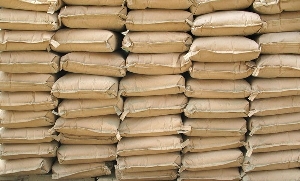- Home - News
- TWI News | TV
- Polls
- Year In Review
- News Archive
- Crime & Punishment
- Politics
- Regional
- Editorial
- Health
- Ghanaians Abroad
- Tabloid
- Africa
- Religion
- Election 2020
- Coronavirus
- News Videos | TV
- Photo Archives
- News Headlines
- Press Release
General News of Tuesday, 4 April 2000
Source: GNA
Literacy day held in Saboba/Chereponi district
Saboba (N/R) April 4 GNA - A literacy day under a Rural Integrated Literacy and Development Programme (RILADEP), was held at Saboba in the Northern region at the weekend at which 741 adult learners were awarded proficiency certificates after successfully completing a literacy course of study.
A total of 447 learners received basic certificates for their ability to write and read their local languages and 286 others had advanced certificates for additional knowledge in English.
RILADEP started in the 1960s among the Konkombas with the translation and learning of the Bible in the Likpakpaaln language. However, with the change in its level of development and experience in literacy, the programme now embraces not only Konkombas but also other ethnic groups in the area who work together to promote their socio-economic development.
Speaking at the function, Mr Winston Samuel Binabiba, RILADEP manager, said the acquisition of knowledge and information, especially by women under the programme, has helped the people to break from the culture of silence to fight injustice and harmful traditional practices.
This year a total of 10,475 learners including 3,518 women have enrolled for the literacy programme. They come from the Northern, Volta and Brong Ahafo regions.
Mr. Binabiba said over 60,000 learners have passed out under the programme since its inception with an average of 100 of them continuing their education in the formal school system every year.
In an address read for him, the District Chief Executive, Mr Mohammed Seidu Issah Abah, said in support of the informal literacy programme, the district assembly has allocated eight million cedis this year to the "school for life" programme to procure furniture for its 50 classes.
Mr. Joshua Gewen Beso, chairman of RILADEP expressed satisfaction with the progress made through the programme in helping the people o develop sound minds to be able to contribute more meaningfully to community development.










